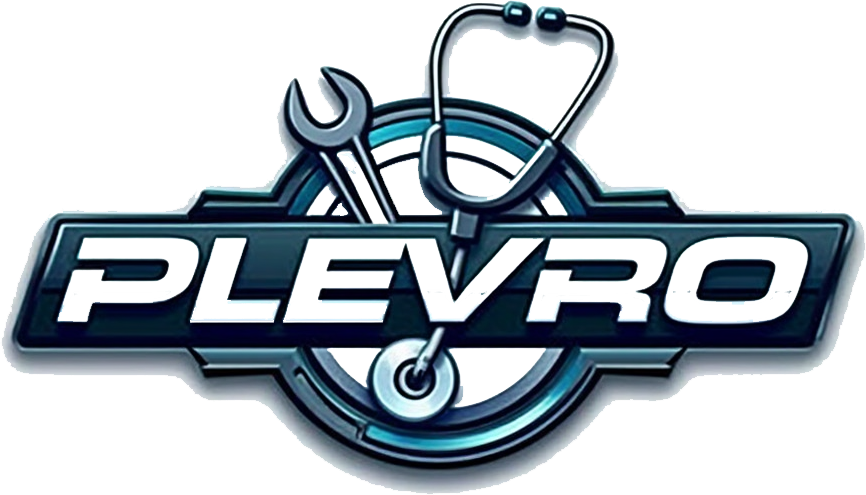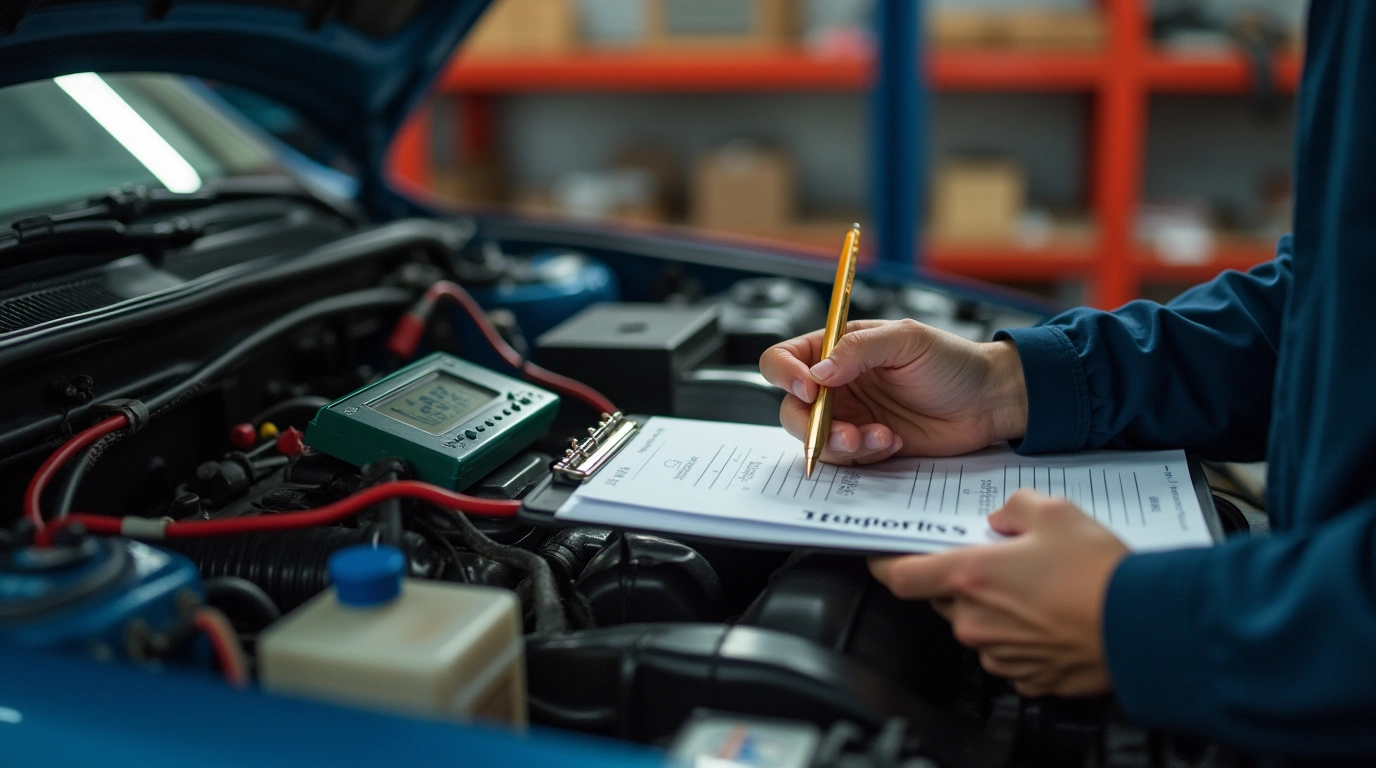Imagine the thrill of cracking a mystery under the hood—your hands on the tools, your mind piecing together clues, and the satisfaction of getting a car back on the road. I’ll never forget the first time I watched a technician diagnose my sputtering engine with a tiny scanner, turning chaos into clarity in minutes. That moment sparked something in me—a mix of awe and curiosity—and I realized this could be more than a fix; it could be a career. As an auto diagnostic technician, you hold the keys to solving car troubles, and the best part? You can turn your passion for engines into a paycheck. In this article, you’ll uncover the skills, tools, and career tips you need to step into this rewarding field. Ready to shift your future into gear? Let’s roll.
Why Choose a Career as an Auto Diagnostic Technician?
Let’s start with the big question: why this path? Cars aren’t just metal and wheels anymore—they’re rolling computers, packed with sensors and systems that need sharp minds to decode. That’s where you come in. The Bureau of Labor Statistics predicts a steady 6% growth for automotive service technicians by 2030, fueled by increasingly complex vehicles. Translation? Jobs are out there, and they’re calling your name.
But it’s not just about demand—it’s about the rush you’ll feel. Picture yourself pinpointing a tricky misfire or saving someone’s day by fixing their ride. It’s problem-solving with a purpose, and if you love cars, it’s a dream gig. Pay’s solid too—PayScale pegs the average auto diagnostic technician salary between $45,000 and $60,000 a year, with room to grow as you stack skills. You’re not just fixing cars; you’re building a future. Sound exciting? Let’s see what it takes.

Key Skills Every Auto Diagnostic Technician Needs
You don’t need to be a genius to start, but you’ll need a toolkit of skills to shine. Here are five essentials to master:
- Analytical Thinking: Cars throw puzzles at you—codes, noises, quirks. You’ll need to connect the dots like a detective, figuring out if a P0300 code means spark plugs or something deeper.
- Technical Know-How: You’ll dig into engines, electronics, and software. Understanding how systems talk to each other is your bread and butter.
- Attention to Detail: Miss a loose wire or a faint hiss, and you’re back to square one. Precision keeps you ahead.
- Communication: You’ll explain issues to customers or teammates—clear, simple words turn tech talk into trust.
- Adaptability: Cars evolve—hybrids, EVs, new tech. You’ll need to roll with the changes and learn fast.
How do you build these? Practice is key. Tinker with your own car, shadow a tech, or dive into online forums like iATN. The ASE (Automotive Service Excellence) outlines these skills as must-haves for certification—start honing them now, and you’ll be unstoppable.
Must-Have Tools for an Auto Diagnostic Technician
Your hands and brain are your foundation, but tools are your superpower. Here’s what you’ll need in your arsenal:
| Tool | Use | Approx. Cost |
|---|---|---|
| OBD-II Scanner | Reads car computer codes | $20-$50 |
| Multimeter | Tests electrical systems | $15-$30 |
| Diagnostic Software | Analyzes advanced vehicle data | $100-$300 |
| Socket/Wrench Set | Accesses parts for inspection | $30-$60 |
- OBD-II Scanner: Your go-to for pulling codes like P0420—plug it in, and your car spills its secrets.
- Multimeter: Checks battery health or wiring faults—12.6 volts is gold; below 12.2 spells trouble.
- Diagnostic Software: Think Snap-on or Bosch systems—pricey, but pros use it for deep dives into modern cars.
- Socket/Wrench Set: Gets you into tight spots to swap sensors or check belts.

You can snag these at AutoZone, Amazon, or even second-hand from retiring techs—start small and build up. These tools don’t just fix cars; they launch your career.
Steps to Start Your Auto Diagnostic Technician Career
Ready to jump in? Here’s your roadmap—five steps to get you from dreamer to doer:
- Get Educated: Enroll in a trade school or community college auto program. NATEF-accredited courses (like those at UTI) teach diagnostics hands-on—6 months to 2 years, depending on your pace.
- Gain Hands-On Experience: Work part-time at a shop, apprentice with a mentor, or fix friends’ cars. Real-world grease under your nails beats any textbook.
- Earn Certifications: Aim for ASE’s A1-A8 badges—start with A6 (Electrical) or A8 (Engine Performance). They’re your golden ticket to credibility.
- Build a Resume: List your training, tools you’ve mastered, and any fixes you’ve nailed. Even “replaced O2 sensor” shows you’re serious.
- Apply for Jobs: Hit up dealerships, indie shops, or chains like Pep Boys. Entry-level diagnostic roles start around $15-$20/hour—prove yourself, and you’ll climb fast.
Each step builds your confidence and creds. You don’t need to rush—start where you’re at, and you’ll be diagnosing like a pro before you know it.
Career Tips to Stand Out as an Auto Diagnostic Technician
Want to be the tech everyone calls? These tips will set you apart:
- Stay Ahead of Tech: Cars are going electric—learn EV systems now. Automotive News reports hybrids and EVs doubling in sales by 2030—be ready.
- Network Like Crazy: Join forums (e.g., Reddit’s r/MechanicAdvice), hit local auto meets, or chat up shop owners. Connections open doors.
- Master Customer Trust: Explain fixes clearly—say, “Your misfire’s from a bad coil; here’s why.” People remember a tech they rely on.
- Keep Learning: Take online courses (e.g., Coursera’s automotive basics) or watch YouTube pros like ScannerDanner. Knowledge is your edge.
You’re not just fixing cars—you’re becoming the go-to expert. That’s the kind of rep that fuels a long, thriving career.
Conclusion: Drive Your Future Forward
Becoming an auto diagnostic technician isn’t just a job—it’s a chance to turn your curiosity into a craft, your skills into solutions, and your passion into pay. With the right tools, a few key skills, and a hunger to learn, you’re on your way to troubleshooting like a pro. Start today—grab a cheap scanner, fix a friend’s ride, or sign up for that first class. Your future’s waiting under the hood. What’s your next step? Share your plans or questions below—I’d love to cheer you on!

H2: Why Choose a Career as an Auto Diagnostic Technician?
- Key Points:
- High demand for skilled techs (cars are more complex).
- Job satisfaction from problem-solving.
- Emotional appeal: turn your love for cars into a living.
- Data/Sources:
- BLS job growth stats (e.g., 6% growth for auto techs by 2030).
- Average salary ($45,000-$60,000) from PayScale.
H2: Key Skills Every Auto Diagnostic Technician Needs
- Key Points:
- List: 5 Skills
- Analytical thinking.
- Technical know-how.
- Attention to detail.
- Communication.
- Adaptability.
- How to build each skill.
- List: 5 Skills
- Sources: Skills from ASE certification guides.
H2: Must-Have Tools for an Auto Diagnostic Technician
- Key Points:
- Essential tools (OBD-II scanner, multimeter, etc.).
- Why they matter for diagnostics.
- Table: Auto Diagnostic Technician Toolkit
- Columns: Tool, Use, Approx. Cost
- Sources: Tool costs from AutoZone/Amazon.
H2: Steps to Start Your Auto Diagnostic Technician Career
- Key Points:
- List: 5 Steps
- Get educated (trade school/community college).
- Gain hands-on experience.
- Earn certifications (e.g., ASE).
- Build a resume.
- Apply for jobs.
- Practical advice for each step.
- List: 5 Steps
- Sources: Career paths from NATEF programs.
H2: Career Tips to Stand Out as an Auto Diagnostic Technician
- Key Points:
- Stay updated on tech (e.g., electric vehicles).
- Network with pros.
- Emotional hook: “Be the tech everyone trusts.”
- Sources: Industry trends from Automotive News.
H2: Conclusion: Drive Your Future Forward
Your path to a rewarding career starts here—take the wheel and share your journey!
H2: FAQ Section
- Q: What’s the first step to becoming an auto diagnostic technician?
- Q: How much can an auto diagnostic technician earn?
- Q: Do I need a degree to be an auto diagnostic technician?

